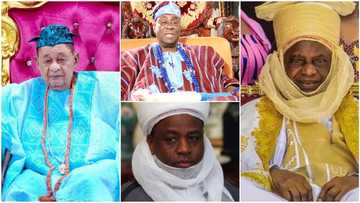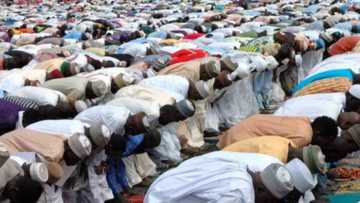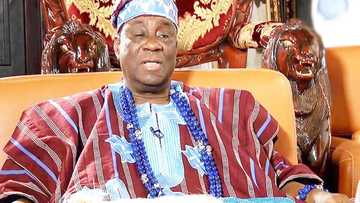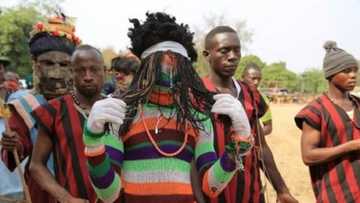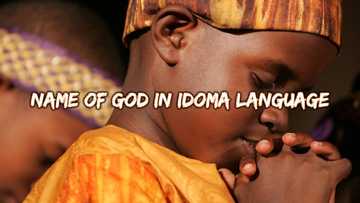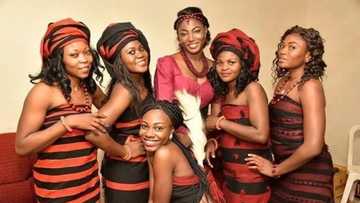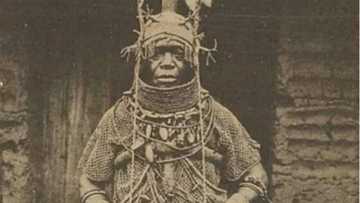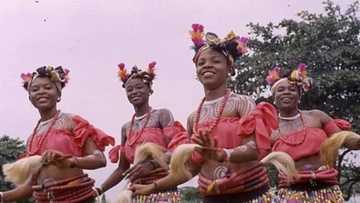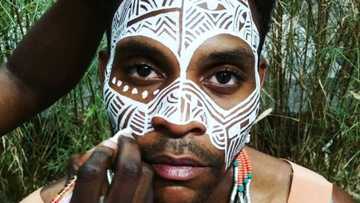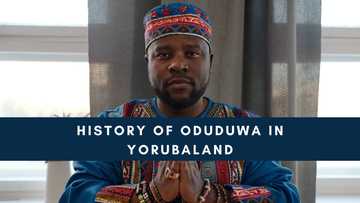Yoruba religion Ifa: history, rules and interesting facts
One of the defining aspects of the Yoruba people is Ifa worship, a spiritual system based on three distinct components; Olodumare (the supreme creator of heaven and earth), Orisa/Orisha (the spirits that make up the elements of every living thing), and the ancestors. The Yoruba religion Ifa has been practised for thousands of years and is arguably one of the most extensive religions in West Africa.
PAY ATTENTION: Click “See First” under the “Following” tab to see Legit.ng News on your Facebook News Feed!
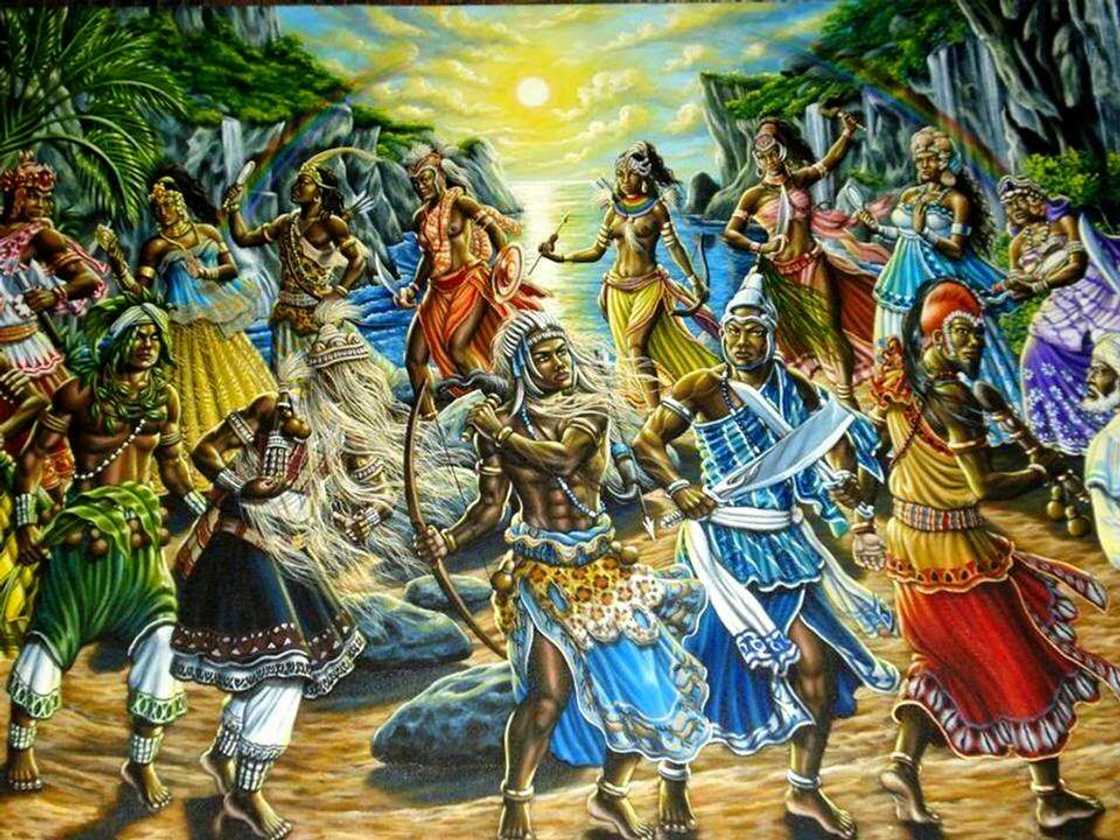
Source: Facebook
What does the Ifa religion entail, how does one join, and what are its fundamentals?
The history, rules and interesting facts about the Yoruba religion Ifa
Here is everything you need to know about the spiritual system of Ifa.
Where is Ifa practised?
While the religion predominantly belonged to the Yoruba people, it was also practised by small groups in other West African countries, the Canary Islands, and small parts of the Americas. Some aspects of the religion are also integrated into other cultures, traditions and spiritual systems such as Umbanda, Vodou, Palo, and Santeria.
PAY ATTENTION: Install our latest app for Android, read best news on Nigeria’s #1 news app
History of the Ifa religion
Numerous theories regarding Ifa's origin are available. Like other religions and traditions, Ifa's history is woven with numerous folktales, myths, and legends, all deeply rooted in the rich Yoruba culture.
The first theory posits that the Ifa oracle was founded by the grand priest, commonly known as the Orunmila. According to Yoruba mythology, the grand priest was sent to earth by the supreme creator to bring laws into the world.
The Orunmila then founded the first Ifa centre in a place known as Ile-Ife (widely believed to be the cradle of the Yoruba people). He then initiated his first students, known as Akoda and Aseda.
The second mythology states that Ifa was brought by a man known as Setiu, who settled in Ile-Ifu. The last theory states that Ifa was brought to the Yoruba people by Arugba, the eight Alaafin (owner of a palace) of Oyo.
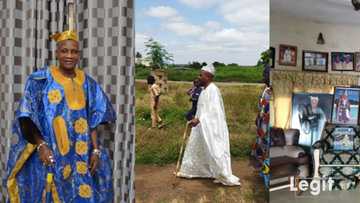
Read also
EXCLUSIVE: Nobody gave us land, we came from Gbagba - Olakaka clears air on boundary controversy
How is Ifa structured?
What is Ifa religion? It is a spiritual system based on belief in three major components: the supreme being (Olodumare), the spirits (Orisa), and the ancestors. Olodumare is also known by other names, including Eleda, Eledumare, and Olorun.
Olodumare
According to Ifa, there is only one supreme God known as Olodumare. The name is derived from the phrase 'O ní odù mà rè' that loosely translates to 'he who owns all creation so that it does not become empty.'
The Yoruba people believe that Olodumare has no gender and is barely involved in the activities of human beings here on earth. The religion posits that Olodumare created a complete universe that has everything human beings require to lead happy and fulfilled lives.
Ifa's creation theory states that Olodumare created the entire universe, designed the seasons, night and day, and set the destinies of humans. When some misfortune befalls a person, the Yorubas say that the said person is 'under the lashes of the Olodumare.'
Olodumare also created death after humans begged him to free them from the struggles that came with growing old and frail.
Orisa/Orisha
According to Ifa, every element of nature and every life form has an inner force that feeds its source. This includes everything from the wind, thunder, flowers, storms, clouds, rocks, rivers, humans, and animals. The natural forces that comprise and feed the universe are known as the Orisa/Orisha.
Every Orisa has particular responsibilities. The entire human race is said to be in constant communication with these natural forces, whether aware of them or not—additionally, the Orisa act as the intermediaries between humans and the supreme being.
Here is a look at the most common Orisas.
Eshu
The Ifa religion states that there are 201 powers of the right side, commonly known as Iborra or Irumole, and 201 powers of the left side, known as Ajogun. The right-side powers are the Orisa, while the left side powers are the demons.
The Orisa protects and facilitates humankind's well-being, while the Ajogun presents humankind with obstacles and unending challenges. Eshu's place in the spirit is unique since he is both Ajogun and Orisa. He can be on both sides at the same time.
As the head of the demons, Eshu has command over the eight agents of mischief identified in Ifa. These are Iku (death), Arun (sickness), Egba (paralysis), Epe (curse), Ewon (imprisonment), Oran (great trouble), Ofo ( great loss) and Ese (all other problems).
For his ability to be both bad and good, Eshu is loved and feared by all. During Ifa sacrifices, Eshu is usually offered the sacrificial item before any other Orisa.
Oggun

Source: UGC
Oggun is known as the master of the knife and is closely associated with sacrifices in Ifa. While Eshu usually receives the sacrifice first, Oggun is said to be the first to feel the blood of the sacrifice since he has control over the knife.
Oggun represents the life force of the sacrificial being. He is said to pave the way and remove obstacles for people, thus making it easier for them to achieve spiritual growth. He is also the source of the force that sustains life in all creation.
Yoruba mythology states that Oggun sentenced himself to a life of no sleep as long as the world was turning. This is because when one half of the world is asleep, he is busy with the other half that is awake.
Oshosi
Oshosi is said to guide humans to the shortest path to their spiritual goals. This Orisa's primary responsibility is to help humankind build good character by taking them on an elaborate spiritual quest known as 'Iwa-kiri.'
It is said that physical evolution and spiritual growth go hand in hand. This means that Oshosi balances humans' spiritual growth with that of nature's protection and growth.
Ozun
Ozun is one of the first Orisas that any believer of the Ifa religion receives. He represents the ancestral spirit that guides an individual and warns them of impending harm. Ozun is therefore viewed as the guardian of men.
Obatala
Obatala is said to be directly below the supreme creator in the hierarchy. His rank denotes his importance on matters related to the lives of human beings. It is said that this Orisha is the 'owner of all heads on earth.'
Since Olodumare never interferes in the lives of men on earth, it is Obatala's job to watch over them.
Yemaya
Yemaya is a female Orisha and is said to be the most powerful of all forces of nature. She was given dominion over the seas and oceans and moved from left to right, creating the well-known movement of the waves.
Yemaya is said to dress in varying colours, including pink, white, blue, and green. When Yemaya's children fall ill, they are said to carry baskets of roses to the seashore and call the Orisa's name while throwing her white roses.
Algayu Sola
Algayu Sola is said to have been born at the centre of the earth, giving him power over the planet and dominance to look as far as his eyes can see. This Orisa represents the earth's mountains, rivers, and other high places.
His natural force is said to control people's ambitions, the seasons, day and night, careers, bad luck, and struggles in life. Therefore, he is both feared and respected and is quite close to two other Orisas known as Oya Yansan and Ochun.
Oya Yansan
Oya Yansan is the second female Orisa and is the ruler of River Niger, markets, lightning, witchcraft, and the storm. According to Ifa, Oya Yansan is the natural force behind the colours of the rainbow.
Since Oya Yansan controls some scary weather elements, she is considered quite remorseless and often sends fear into the hearts of men.
Shango
Ifa mythology states that when Olodumare began to lose his memory, he taught Shango the entire laws of Ifa and had him write them down in stone so that he would never forget. For that reason, this Orisa is said to be the custodian of the Ifa religion.
Orula
Orula is considered the future counsellor and prophet of humankind. Those who practice the Ifa religion wear green and yellow beads to pay tribute to Orula. As a prophet, Orula is said to offer counsel and, at times, even influence impending destinies.
Orula's power over men is said to be so immense that he can even influence followers of other Orisas to abandon their masters and join him. His presence is said to be felt in the earth through disciples and Babalawos (fathers of mysteries).
Oshun
Oshun is said to be the goddess of the Oshun river that runs southwards through central Yorubaland in southwestern Nigeria into the Lagos Lagoon. She is said to live in a cave in Ijesa.
Yoruba mythology states that Oshun was raised by Yemaya and is Shango's second wife. She controls happiness and love.
Osain
Osain is the Orisa that owns and controls herbs and medicinal plants that are an integral part of Ifa. He is said to have been born of no mother and father but from the marriage of the water bodies and the earth.
Osain is said to spend his life by himself, a fact attributable to his appearance. He has one arm, one leg, asymmetrical ears. The larger ear is said to be so big that it cannot hear anything. The smaller one is said to be so good that Osain can hear a leaf falling from a tree that is miles away.
Ancestors
According to the Ifa religion, communicating with ancestors is everyone’s birthright and does not require any special ceremonies or permissions. For most people, this communication is through remembrance of an ancestor or conversations through dreams.
Worship in the Ifa African religion
One of the most important aspects of the Ifa religion is divination. The Orunmila (grand priest) reveals prophecies and divinity to the world. Male priests are known as Babalawos, while their female counterparts are known as Iyanifas.
These priests use a divining chain known as 'Opele', a divination tray called 'Opon Ifa,' and kola nuts known as 'Ikin.' These items are all used to read divinations and prophesies. A person's divination allows them to gauge whether or not they are living in harmony with nature and following the path they are meant to.
Besides dealing with individuals, the priests also reveal prophecies involving entire communities and towns and advice kings on the necessary sacrifices and rituals to partake from time to time.
Odu Ifa
Odu Ifa is a literary compilation that forms an essential part of worship in Ifa. The compilation contains 16 books with a total of 256 Odu. The Odu references all situations, circumstances, actions, and consequences based on the Ese Ifa.
Ifa religion beads meaning
Those who practice Ifa often wear necklaces and bracelets as a bridge to the Orisa world. These objects act as personal shrines meant to protect the wearer. The beads are also used during initiation into the Ifa religion.
A person's beads are known as Elekes and should never be touched by anyone else except the owner and a priest.
Ifa religion sacrifice
There are two forms of sacrifice in Ifa; a large one known as ebbo and a small one. Ebbo requires the sacrifice of an animal to the Orisa and is basically used to appease the spirits when there are huge problems.
The smaller sacrifice is the more common one and can be carried out using common items such as candles and fruits.
How old is the Ifa religion?
The Ifa philosophy and spiritual system are said to be about 8,000 years old. It is said to have originated with the West African Yoruba people and was later taken to the Americas during the slave trade.
How to join Ifa religion?
Here is how to become part of the Ifa religion. First, a person must be initiated into the religion, a process that involves the priests. Secondly, one must change their lifestyle and begin adhering to the guidelines set by the religion.
When talking about how to practice the Ifa religion, a believer noted that he had to change numerous aspects of his life after joining Ifa. He had to stop eating pork and had to begin praying every morning and night.
It is said that one has to do some reading upon initiation, after which your Orisa chooses you. Different people are said to attract the attention of different Orisas.
Ifa religion rules
There are 16 rules that underline the Ifa religion beliefs.
- Law 1: There is a single Supreme God.
- Law 2: There is no Devil.
- Law 3: Except for the day you were born and the day you are supposed to die, there is no single event in your life that cannot be forecast and, when necessary, changed.
- Law 4: It is your birthright to be happy, successful, and fulfilled.
- Law 5: You should grow and obtain wisdom during this process.
- Law 6: You are born through your blood relatives.
- Law 7: Heaven is home, the earth is the marketplace, and everyone is constantly between the two.
- Law 8: You are part of the universe in a literal sense, not a figurative way.
- Law 9: You must never initiate harm to another human being.
- Law 10: You should never harm the universe of which you are apart.
- Law 11: Your temporal and spiritual capacities must work together.
- Law 12: You are born with a specific path, and it is your goal to travel it. Divination will be there to provide your road map.
- Law 13: Your ancestors exist and must be honoured.
- Law 14: Sacrifice guarantees success.
- Law 15: The Órisàs live within us.
- Law 16: You need to have no fear.
Books on Ifa religion
With its fascinating concepts, beliefs, traditions, and traditions, the Ifa religion is undoubtedly worth reading about. Here are some Ifa religion books for beginners that break down the complex concepts of Ifa religion for beginners:
- The Way of Orisa: Empowering Your Life Through the Ancient African Religion of Ifa by Philip J. Neimark
- Fundamentals of the Yorùbá Religion (Òrìsà Worship) by Chief Fama
- The Handbook of Yoruba Religious Concepts by Baba Ifa Karade
- The Sacred Ifa Oracle by Afolabi A. Epega
- Ifa: The Ancient Wisdom by Afolabi A. Epega
- The Adventures Of Obatala by Ifayemi Eleburuibon
- Esu-Elegba: Ifa and the Divine Messenger by Awo Falokun Fatunmbi
- Iba'se Orisa: Ifa Proverbs, Folktales, Sacred History and Prayer by Awo Falokun Fatunmbi
- Egun: The Ifa Concept of Ancestor Reverence (The Metaphysical Foundations of Ifa) (Volume 3) by Awo Falokun Fatunmbi
The Yoruba religion Ifa is one of the religions in West Africa. The elaborate structure, beliefs, rules, and rich history make it fascinating. While some of its believers have converted to Islam or Christianity, Ifa still lives on, more than 8000 years after its inception.
READ ALSO: Dual citizenship and other types of citizenship in Nigeria
Legit.ng recently explored the types of citizenship one can have in Nigeria, dual citizenship included. Modern-day advancements in travel mean that people are constantly moving across countries. These movements, coupled with other reasons, at times make it necessary to have citizenship in another country.
The different forms of citizenship all have their pros and cons, and whatever works for one person may not necessarily work for another. Luckily, most aspects of citizenship are enshrined in the Nigerian constitution.
Source: Legit.ng


